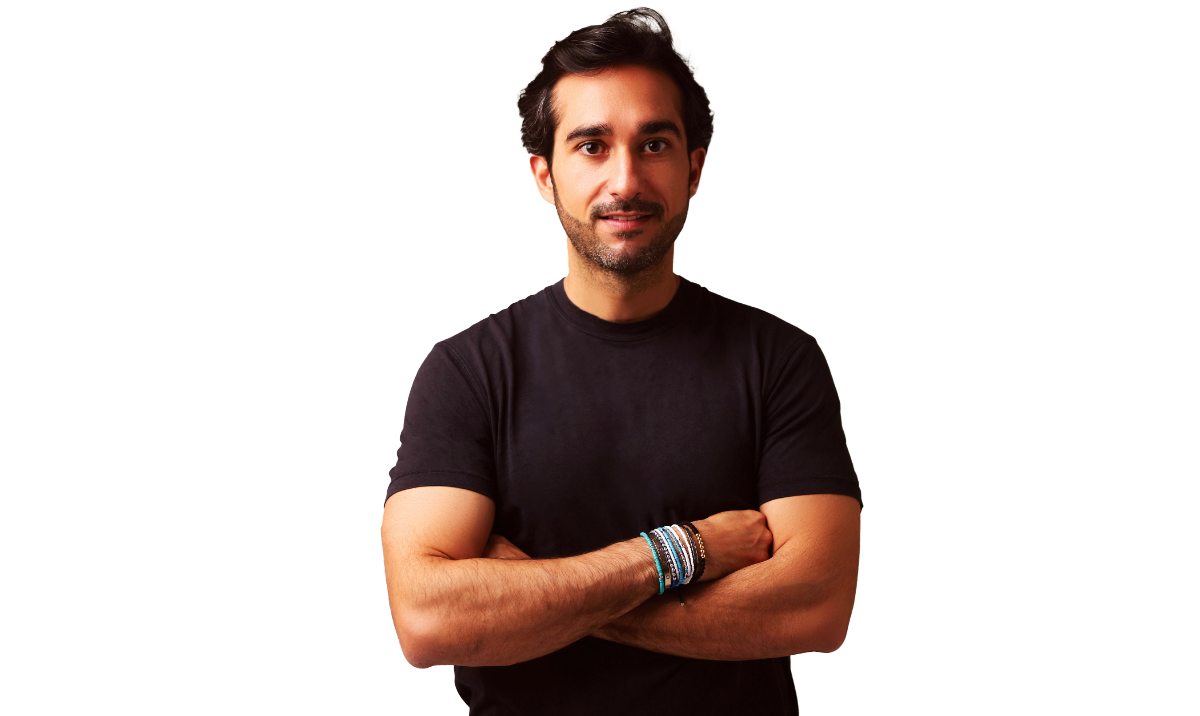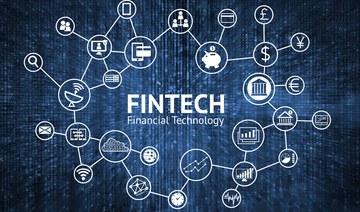CAIRO: Saudi Arabia’s embracing of open banking has transformed the region’s financial ecosystem, according to a top fintech CEO.
In an interview with Arab News, Abdulla Al-Moayed, head of Tarabut, praised the Kingdom’s central bank for its inclusive regulatory impact on the financial sector.
In May 2022, the institution, also known as SAMA, went live with its open banking initiative, which has altered the future of financial technology in the Kingdom and the wider region.
Open banking is a technological innovation that enables customers to securely share their data with third parties.
“Open banking changes the very nature of relationships across the financial ecosystem for Saudi Arabia and for the region as a whole. This is only a good thing,” said Al-Moayed.
Echoing those sentiments, CEO of US-based fintech MoneyHash Nader Abdelrazik, told Arab News: “Open banking (in Saudi Arabia) will significantly catalyze the relationship between banks and fintech, and it will open up a multitude of business use-cases.”
He added: “Banking and finance innovation is highly dependent on access and adoption of open data frameworks. Once these frameworks are in place, not only the existing banks and fintechs will collaborate more, but it will also attract more banks and fintechs to expand to the market and embed their solutions.”
Abdelrazik believes this will increase the economy’s digital sophistication and competitiveness, “but the real winner here is the consumer.”
In its Open Banking Policy report, SAMA said its initiatives focus on “nurturing the rise of digital technologies and their impact on the new financial services enabled by them, as well as building the regulatory framework needed to adopt these initiatives.”
The release further stated: “This opens the door to create and offer new financial services. Therefore, SAMA sees open banking as a pivotal role in the further development of the Kingdom’s financial sector.”
Al-Moayed explained that SAMA’s efforts to standardize application programming interfaces or APIs, are enhancing the country’s monetary platforms, which aim to broaden financial inclusion by facilitating secure, seamless, and affordable access to services and advice.
APIs allow different software applications to communicate with each other, facilitating the integration and sharing of data and functions.
“Standardized APIs enable interoperability between providers, leading to a more cohesive financial ecosystem,” Al-Moayed said.

Open banking changes the very nature of relationships across the financial ecosystem for Saudi Arabia and for the region as a whole.
Abdulla Al-Moayed, Head of Tarabut
“This allows for the development of innovative financial services and products that can cater to a wider range of customer needs. By opening access to financial data, these APIs are fostering an environment of innovation, allowing fintech startups to focus on end-user problems; away from the worries of connectivity and access to data,” he added.
Being one of the region’s leading providers of APIs, Tarabut has set a prime example for others to follow.
“Our mission is to enable the connections necessary to expand financial inclusion for everyone, by building the infrastructure that enables secure, seamless, and inexpensive financial services and advice. As with all financial and personal data, we should be clear that trust, security, and safety are a non-negotiable part of the process,” Al-Moayed stated.
Regarding security, the CEO highlighted: “At Tarabut, we take a series of continuous steps to ensure security, such as ensuring that all transactions and data access requests are authenticated using multiple factors to enhance security, as well as the requirements to also employ state-of-the-art encryption standards to protect data during transmission and storage.”
He further explained: “Data access controls, such as implementing strict controls on who can access specific data and for what purpose, ensure that customer data is not misused.”
Al-Moayed adde: “There are also continuous and regular compliance checks and audits to ensure that all participants in the open banking ecosystem adhere to the highest security standards and regulatory requirements.”
He also underscored the collaborative effort with SAMA during the regulatory sandbox period, which showcased the potential of open banking to transform financial accessibility.
Fostering symbiotic relationships
“Looking at Saudi Arabia, we see a nationwide ambition to promote a symbiotic relationship between banks and fintechs, by enabling data sharing and the adoption of innovative technology solutions,” Al-Moayed said.
“Banks provide fintech companies with access to valuable financial data with customer consent, and the fintechs and the banks can work together to create more personalized and innovative financial products,” he added.
Al-Moayed explained that banks looking to partner with a fintech company could lead to new revenue streams and open up customer segments, enhancing their market reach and product offerings — as well as ensuring adaptability and innovation for the young, digitally-native population
of the Kingdom.
“Together, banks and fintech can reach underserved segments of the population, as well as those who could benefit from improved awareness and access to different services, providing each with the many benefits and impacts that are inaccessible by traditional means,” he said.
Safeguarding consumer data
According to Al-Moayed, SAMA has established a robust legal framework essential for safeguarding consumer data, which mandates explicit consent before sharing financial information with third-party providers.
“SAMA have rightfully identified consumer data protection and privacy as crucial for consumer trust and participation,” stated Al-Moayed.
He elaborated that this approach not only provides consumers control over their personal information but also “gives consumers control over their data, including the right to know how their information is being used and the ability to revoke access at any time, builds trust and encourages participation in the open banking ecosystem,” which is vital for building trust within the banking sector.
“We believe this is a critical part of the trust-building process for banking customers across Saudi Arabia. By making it clear to people that every person is the true owner of their data, they can feel empowered to make the best access decisions for their personal needs,” he added.
A smooth transition
As the Kingdom transitions toward open banking, traditional banks are seizing the opportunity to redefine their roles.
“We have been hugely impressed by the vision and appetite for transformation from banks across the Kingdom,” Al-Moayed expressed.
He explained that financial institutes are transitioning from being mere custodians of customer funds to becoming more integral participants in their customers’ financial lives.
“The banks we partner with truly see open banking as so much more than a new series of regulations to comply with,” he said.
“Recognizing the value of innovation brought by fintech startups, like ours, many banks are forming partnerships and collaborations to leverage the best available technology to enhance their offerings,” Al-Moayed added.
MoneyHash’s Abdelrazik stated that traditional banking will continue to thrive and be active, at least in the short term.
“But with the rise of open banking and numerous opportunities in the fintech sphere, banks implementing a robust digital strategy, and leveraging strategic alliances with fintechs, can be much more competitive and agile to this dynamic market,” he added.






























